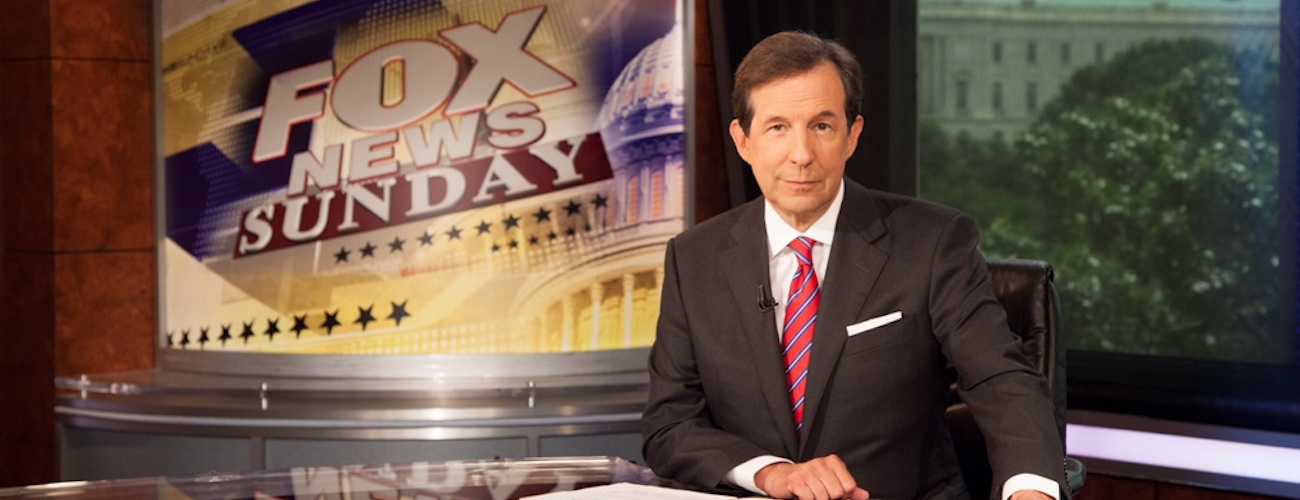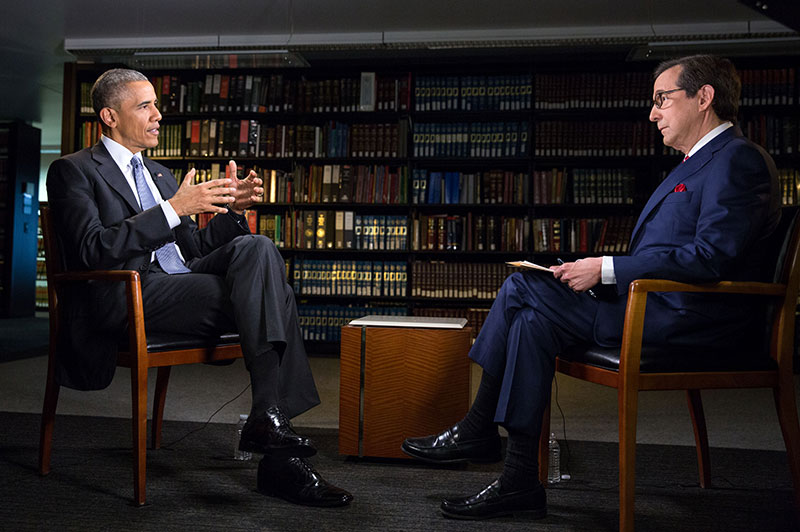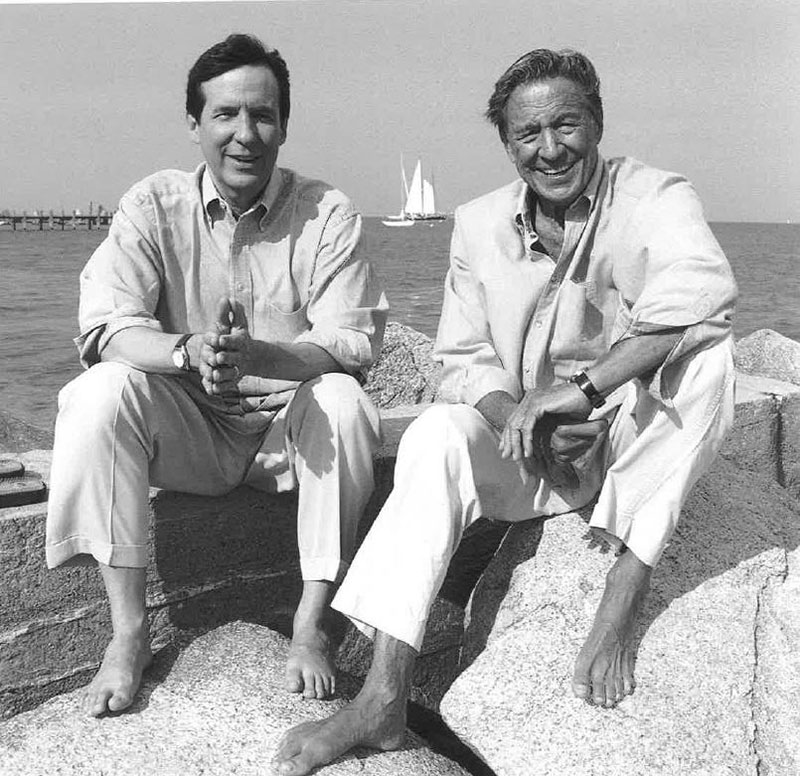Sign up for the daily CJR newsletter.
Chris Wallace was worried. It was October 18, and the next evening, in front of more than 70 million viewers, the veteran newsman would become the first journalist from the Fox News Channel to moderate a presidential debate.
Working out of his Las Vegas hotel suite, Wallace refashioned his questions, sharpening the language. He ripped out sheets of paper, tore them to pieces, and stuffed them into a plastic laundry bag. His wife, Lorraine, and his Fox News Sunday researcher, Lori Crim, then took the shredded bits of paper and fanned out through the Encore hotel complex, dumping them in trash cans by the swimming pool and on the casino floor in an attempt to ensure that no one would be able put the pages together and gain access to the questions before the debate.
There were moments over the six weeks between the day he was assigned the debate until that night in the hotel, he admits, when he felt overwhelmed. But after the final questions were written and the scraps of rejected ideas discarded, Wallace felt at peace. “I slept like a baby that night,” he says.
During the debate, fears that Wallace would show a partisan bias due to his position at Fox, or that he would fail to press the candidates due to his stated reluctance to fact checking faded as the night went on.
Tonight was a great night for Chris Wallace. He was outstanding — and I bet some new people will tune into @FoxNewsSunday.
— Richard Deitsch (@richarddeitsch) October 20, 2016
By the next week, the debate was widely hailed as the best, and most substantive, of the entire election. “When it was over, I knew I hadn’t screwed up. I knew it wasn’t a disaster,” Wallace says. “My wife came into the locker room and threw her arms around me. I felt like the winning quarterback and the head cheerleader had come to congratulate me. I said ‘Was it okay?’ She looked at me and said, ‘Honey, it was great.’”
Related: Journalists too easily charmed by power, access, and creamy risotto
The next day, less than 24 hours removed from his seat at the center of the campaign, Wallace found himself in the sixth row of a Southwest Airlines flight from Las Vegas to Washington D.C., reading through emails. He says it was the first time he realized how positive the reaction had been. “I knew it was a good moment for me,” Wallace says. “I knew it was an important moment for Fox because I think, to a lot of the nay-sayers, it said, we do serious, solid journalism, and we have serious, solid journalists.”
Now Wallace is getting ready to get back in the hot seat. On Friday morning, four days before the election, Wallace sits perched on a chair in Fox News’ midtown studios, making appearances on morning shows around the country. Philadelphia, Tampa, Minneapolis: Wallace spends a few minutes with each of them, weighing in on the FBI’s investigation into Clinton’s emails and making the same dad-joke about Fox’s new election night studio (“It looks like the bridge of the Starship Enterprise – I’m not sure if that makes me Captain Kirk or Mr. Spock”). Though he consistently refers to the current campaign as “dispiriting,” Wallace gives off the impression of a man who is happy in his role, and enjoying the ride.
Though he laments the tenor of the campaign, he says that it has been a great story to cover. And, of course, he knows the debate was important for his career. “My wildest hope had been that I would be equally criticized by both sides,” Wallace says. “I never dreamt that I would be equally praised by both sides.”
Related: Election results: Here’s what to expect and when
He works for Fox but Chris Wallace deserves exceptional praise. He was tough and he was right down the middle fair. His Dad would be proud.
— Howard Dean (@GovHowardDean) October 20, 2016
This, Wallace’s 52nd year in political journalism, has been a signature one for the Fox News anchor. After kicking off the campaign season as one of three moderators at the first Republican primary debate last August, Wallace has seen his Sunday show score the highest ratings in its 13 years under his watch. He has earned praise for his tough questioning of politicians and surrogates on both sides.
He is the son of Mike Wallace, the legendary 60 Minutes correspondent, though his parents divorced when he was a year old, and he didn’t have a relationship with his father until his teenage years. He was raised by his mother and stepfather, former CBS News president Bill Leonard. It was Leonard who gave Wallace his start in political journalism, posting him as Walter Cronkite’s assistant at the 1964 Republican convention.
Wallace went on to cover Washington for NBC and ABC, and also reported from Israel during the first Gulf War. He grew closer to his father in later years, calling him “my best friend.” In 2003, Wallace moved to Fox to take over as the host of Fox News Sunday.
Courtesy: Fox News
Wallace’s star turn has come in the midst of a wild year for Fox News. The network kicked off the presidential campaign in August 2015 by hosting the most-watched primary debate in history. That night, Megyn Kelly took on Trump directly for his past statements about women, and the Republican frontrunner attacked Wallace for asking about his past bankruptcies. Fox went on to host two additional Republican primary debates in early 2016, and its journalist-moderators continued to showcase the hard news side of the network.
Then in July, former Fox & Friends anchor Gretchen Carlson filed a lawsuit against Fox News Chairman Roger Ailes, alleging sexual harassment. Rupert Murdoch, Ailes’ boss and long-time champion, hired a law firm to investigate Carlson’s claims. According to New York’s Gabriel Sherman, more than two dozen current and former Fox News women told investigators about harassment they had experienced from Ailes. By the end of the month, Ailes was gone, leaving Fox News without its founder less than five months before the presidential election.
Though Wallace spoke warmly about his personal feelings towards Ailes, he recently told the LA Times that he was disappointed in Ailes’ actions, and that they had not spoken since July.
Fox News has long been a punching bag for many in the mainstream press. In recent months, Sean Hannity’s relentless cheerleading of Donald Trump, Jesse Watters’ segment on Asian-American voters, and perennial Saturday Night Live favorite Fox & Friends have provided ammunition for those who argue the network is biased, racist, and lacking in journalistic seriousness.
New York Times Executive Editor Dean Baquet recently summed up the criticism, saying, “Fox News at its heart is not a journalistic institution.” While Baquet praised Wallace and Kelly, he characterized the network as “some weird mix of a little bit of journalism, a little bit of entertainment, a little bit of pandering to a particular audience.”
Wallace brings up the criticism unprompted. “I’m not waiting for or worrying about the approval of the editor of The New York Times,” he says. “Frankly they should look to themselves, because I think their front page has been an embarrassment in this election with the open editorializing.”
Many at Fox are quick to point out that criticisms like Baquet’s overlook the distinction between the news and entertainment divisions at the network. The argument goes that while Hannity, Bill O’Reilly, and Fox & Friends often exist in an opinion-heavy, fact-free atmosphere, journalists like Wallace, Shepard Smith, Bret Baier, and Megyn Kelly provide serious reporting and operate within traditional journalistic norms. “We have felt, for a long time, that our hard news component was overlooked,” senior political analyst Brit Hume says.
That distinction was muddled last week by a false report from Baier, who said that the FBI’s investigation of Hillary Clinton’s emails was headed towards a “likely indictment.” Other outlets quickly refuted that report, and Baier admitted on Friday that it was “a mistake.” Baier has a solid reputation in journalism circles, but his error was a black eye for a news division hoping to emerge from the campaign able to celebrate its coverage.
Related: Journalists shower Hillary Clinton with campaign cash
While Fox’s ratings are propped up by the opinionated primetime lineup, Wallace attributes Fox’s success not to the outsized personalities which populate the evening hours, but to the network’s ability to pursue stories from perspectives that represent the views of a segment of the population overlooked by other outlets. Viewers are drawn to Fox News, Wallace says, “because people think that the mainstream media has a single focus. There are multiple foci on what’s important in the world.”
An example of the alternative focus that Fox News provides was on display in the framing of one of Wallace’s early questions at the debate. Following up on a general question about the Supreme Court, Wallace asked Trump, “How will you ensure the Second Amendment is protected?” One could imagine a different moderator framing the same question from the perspective of gun control, as CBS News’ John Dickerson did in one of the Democratic debates, asking Hillary Clinton to differentiate her policy from that of her primary opponent, Bernie Sanders: “Can you tell us what the exact difference is going forward between the two of you on the issue of gun control?”
This sort of framing exemplifies Wallace’s critique of the mainstream media. Whatever you think of his politics–though he says he has voted for candidates from both parties, Wallace is registered as a Democrat in order to vote in local DC races–it is undeniable that he managed to run a debate focused more heavily on policy than either of the previous showdowns between Trump and Clinton. One journalist, who knows a bit about moderating presidential debates, having sat in the chair for 12 of them, is Jim Lehrer. “[Wallace] wanted the debate to focus on the issues, not the horserace,” Lehrer says. “For what he did as a professional, I think he has every right to be proud.”
Courtesy: Fox News
On Election Night, Wallace will be sitting in Fox’s newly constructed studio, reporting results as they roll in from around the country. As the campaign, which has brought him new levels of visibility and success, comes to a close, he has been thinking a lot about his stepfather and father, the men who pointed him in this direction so many years ago. Asked what Mike Wallace would think of his son’s work, Wallace begins his answer joking that his father would first have tried to steal the debate assignment away from him. Then, turning serious, Wallace admits, “He would have been enormously proud of me. I like to think, in some way, he is.”
Has America ever needed a media defender more than now? Help us by joining CJR today.









